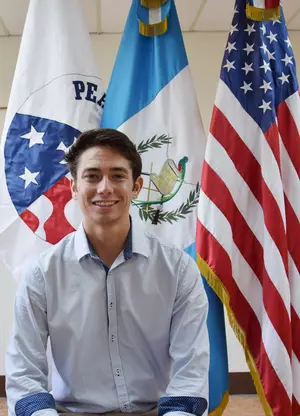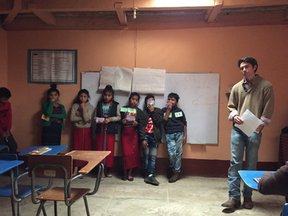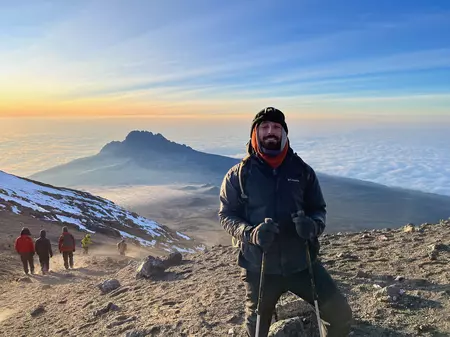
Levi Sofen, ‘19
What made you decide to be a Psychology major?
“I came in undecided and was for the first year or so, but knew that I liked and was fascinated by thinking about how the mind works. I also gained more of an interest in mental healthcare because early during my first year someone told me about wilderness therapy, which sounded really interesting. I also minored in neuroscience and the two go really nicely together; I really enjoyed that.”
What advice would you offer current students regarding their future career/academic goals?
“I would definitely suggest talking to people in the field that you’re interested in, whether they’re a psychologist, a clinician of some kind, a therapist, or neuropsychologist. I would also suggest professors, especially at UPS because they are so approachable, knowledgeable, and kind. I think one of the biggest things I’ve noticed when talking to people that have gone to other schools, especially larger schools, is that they don’t really get to engage with their professors in the way you do at UPS.”
Do you have any specific Puget Sound advice for current students?
“I definitely recommend talking to professors, and I would also say going easy on yourself and maintaining self compassion. Everyone struggles from time to time, especially during the Pacific Northwest winters when things get a little gray. I would also suggest getting involved in clubs. One thing I realized after graduating college was there were so many cool clubs. I ended up having thoughts like ‘wow, I wish I joined beekeeping club’ because now it costs a lot more to embark on opportunities like that.”
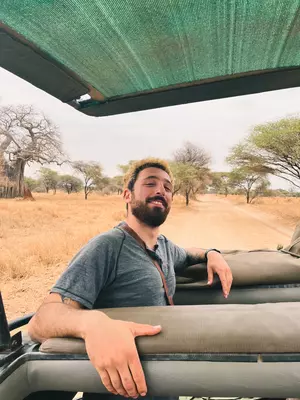
What led you to the path you’re on now? Was there a defining moment, or was it more of a gradual process?
“It was definitely more of a gradual process. I think I realized my senior year after taking some classes with Erin Colbert-White, as well as my capstone project. I realized ‘woah this material is totally fascinating to me,’ that I really enjoy the academic side, and that I could be interested in doing research. After college I began meandering to get to where I am now, where I worked for a year and a half doing wilderness therapy, which is like an intensive in-patient program for trauma and attachment. Then I did about a year and a half of after education, which is like outdoor guiding with groups of kids. I really enjoyed this role and it also gave me the chance to travel and live internationally for about two years. I never studied abroad, so I think that is probably why I promised myself that I was going to travel.”
What was your first job after college?
“My first job after college was wilderness therapy. The specific therapy program I worked for focused on trauma and attachment in mostly adolescents and young adults who had experienced some kind of early childhood trauma. The clinical population was pretty acute, so high risks, a lot of them having suicidal ideation or self-harm ideation. I worked as a part of this program for 60-90 days, so pretty intense, especially being out in the wilderness the entire time. I had 8 days on, 6 days off, and during that time I worked with a group of students on maintaining safety, facilitating therapeutic exercises, and also helping with being in the wilderness such as cooking and getting water. The experience was definitely really challenging, but also really fulfilling.”
How did you get from undergrad to where you are now?
“Right now I am working as a research assistant in Providence, Rhode Island. I am currently working on a study that focuses on adolescent depression. The study recruits out of the emergency department here. I think part of the reason I got this position was because I had experience with depressed teens. I also had experience working in an emergency department because I got an EMT certification after undergrad. I got a lot of this experience after those 2 years of living internationally and traveling. I came back, took some classes, did some research, and sent tons of emails to labs expressing my interest and really just applying to any position that I saw. This was especially because my interest is clinically related psychology and that field’s research. I also reached out to Erin Colbert-White and David Andresen and got some good tips from them.”
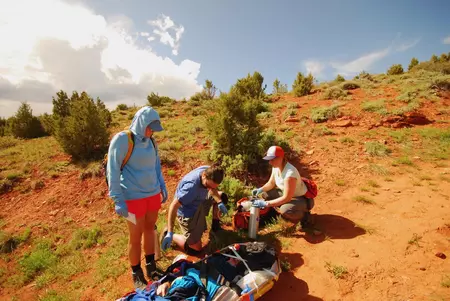
What are your future career goals?
“I am hoping to pursue a PhD in clinical psychology and am probably going to apply next Fall. I am mainly interested in doing a mix of research and clinical work. It gets hard sometimes looking at the acceptance rates.”
What has been the hardest part about finding a career related to your major?
“I think I have had an easier time than others, but I think one of the hardest parts is right out of undergrad, especially clinically related psychology jobs, which are frankly not the best paying and are oftentimes pretty challenging, like working in a new patient setting is just hard. It is important to be willing to be okay with that for a little bit to get the experience, but it is also nice knowing that you are doing important work.”
What do you wish you had done or known during college that might have been beneficial to your career development?
“During my first 3 years of undergrad I was pretty sure that I did not want to do research or get my PhD or anything. I remember my advisor suggesting, ‘well just in case, you may consider looking into some research opportunities.’ I did not look further into this suggestion, but am now wishing that I had because I would probably be more prepared right now. So really I would suggest taking those opportunities just in case you decide to pursue something down the road. There are so many potential valuable experiences during your undergrad that you should take advantage of. I also think a lot of other clinical degrees, like a Masters in social work or counseling, especially if you have done research, will show that you can grapple with scientific and evidence-based aspects.”
Any last comments that you think students should hear?
“I would say that there are a lot of stressors in life, especially for young people, so really taking time for yourself, feeling your emotions, and taking time off if you need it. This is much easier said than done, but I would also say to try pushing yourself into discomfort, such as going and talking to a new professor during their office hours, or taking advantage of an opportunity even if it seems anxiety-provoking.”
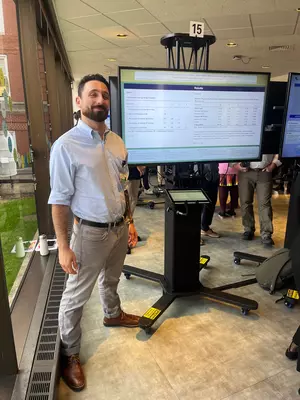
|
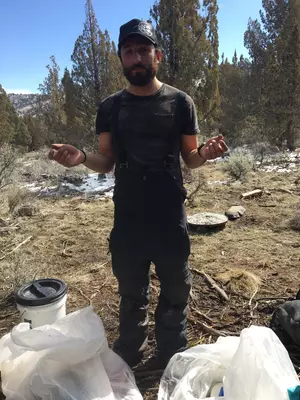
|
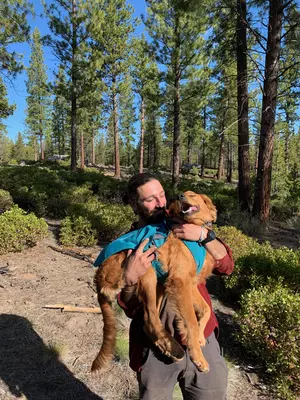
|
